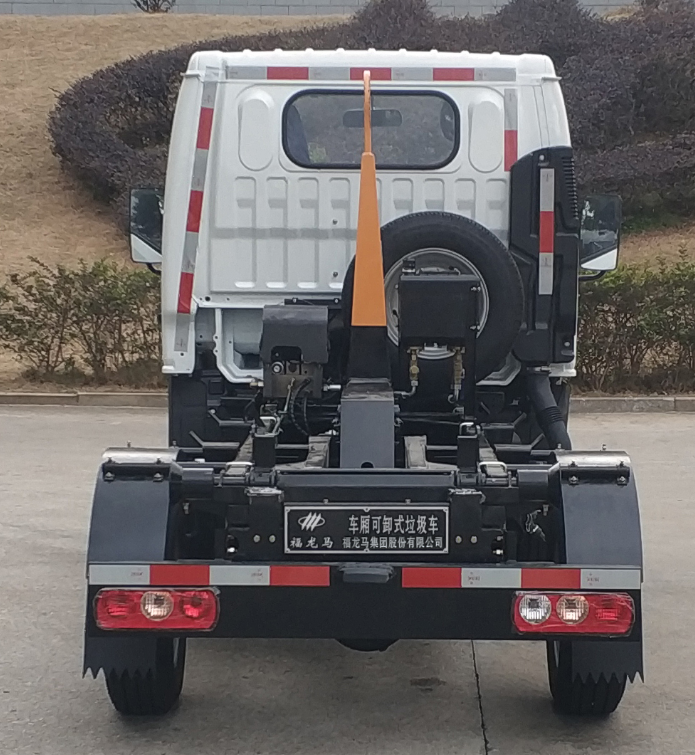City sanitation is more than just a necessity, it’s the backbone of urban living. Imagine a city where waste piles up, streets are filthy, and public health is constantly at risk. Thankfully, modern sanitation systems ensure our cities remain clean, safe, and pleasant to live in. Garbage container trucks are indispensable in maintaining city cleanliness, protecting public health, and ensuring environmental sustainability.
What are Garbage Container Trucks?
Garbage container trucks, also known simply as garbage trucks or refuse trucks, are specially designed vehicles for collecting and transporting municipal solid waste to disposal or recycling facilities. These trucks come in various types, including front loaders, rear loaders, and side loaders, each tailored to specific waste collection needs and urban environments.

Historical Context
The journey of waste management has been a long one, evolving from rudimentary methods to sophisticated systems. In the past, waste was often discarded haphazardly, leading to severe public health issues. The introduction of organized waste collection began in the 19th century, with horse-drawn carts being among the earliest forms of garbage transport. The advent of motorized vehicles in the 20th century marked a significant leap, giving rise to the garbage container trucks we rely on today.
These trucks have undergone numerous transformations, from simple open-bed trucks to complex machines equipped with compactors, hydraulic arms, and even automated systems. This evolution reflects society’s growing understanding of the need for efficient and hygienic waste management solutions.
Function and Mechanics
- Collection: Trucks are equipped with hydraulic systems that allow them to lift and empty large waste containers into the truck’s body.
- Compaction: Inside the truck, powerful compactors crush the waste to maximize the truck’s capacity, allowing it to carry more garbage and reduce the frequency of trips to disposal sites.
- Transportation: Once filled, the truck transports the waste to a landfill, recycling center, or waste-to-energy facility.
Different types of trucks serve different purposes:
- Front Loaders: Used for commercial waste collection, lifting large dumpsters with front-mounted hydraulic forks.
- Rear Loaders: Common in residential areas, where workers manually load waste into the rear hopper.
- Side Loaders: Often automated, these trucks use a mechanical arm to lift and empty bins placed curbside.
Environmental Impact
Garbage container trucks play a crucial role in mitigating the environmental impact of waste. By efficiently collecting and transporting waste, they prevent littering and illegal dumping, which can harm ecosystems and wildlife. Moreover, modern trucks are increasingly designed with environmental considerations in mind:
- Fuel Efficiency: Innovations in engine technology have improved fuel efficiency, reducing the carbon footprint of garbage trucks.
- Electric and Hybrid Models: Some cities are adopting electric or hybrid garbage trucks to further cut emissions.
- Recycling Integration: Trucks equipped to handle recyclable materials help divert waste from landfills, promoting recycling and resource conservation.
Urban Planning and Infrastructure

Effective waste management is integral to urban planning. Garbage container trucks are a key component of this, enabling cities to maintain cleanliness and public health. Urban planners must consider waste collection logistics when designing infrastructure, ensuring that streets are accessible to garbage trucks and that there are sufficient facilities for waste processing.
Strategic planning includes optimizing collection routes to reduce fuel consumption and travel time, thus enhancing efficiency and minimizing environmental impact. Additionally, the placement of waste bins and recycling containers is carefully planned to facilitate easy access for both residents and collection crews.
Technological Advancements
The waste management industry has seen significant technological advancements in recent years.
- GPS and Routing Software: Helps optimize collection routes, saving time and fuel.
- Automated Systems: Reduce the need for manual labor and improve efficiency. Automated arms can quickly and safely empty bins.
- Telematics: Provides real-time data on truck performance and maintenance needs, reducing downtime and improving reliability.
- Smart Waste Bins: Equipped with sensors that notify collection crews when they are full, preventing overflow and improving collection schedules.
These advancements not only enhance the efficiency of waste collection but also improve the safety and working conditions of sanitation workers.
Conclusion
Garbage container trucks are vital to city sanitation, ensuring our urban environments remain clean, healthy, and sustainable. From their historical evolution to modern technological advancements, these trucks have continually adapted to meet the growing demands of urban living. They play a crucial role in reducing environmental impact, supporting urban infrastructure, and leveraging new technologies to improve waste management.
FAQs
How do garbage container trucks contribute to environmental sustainability?
Garbage container trucks help reduce environmental pollution by efficiently collecting and transporting waste, preventing littering, and illegal dumping. Modern trucks are also designed to be fuel-efficient and some are powered by alternative energy sources, reducing their carbon footprint.
What are the different types of garbage container trucks?
There are several types, including front loaders, rear loaders, and side loaders. Each type is designed for specific waste collection needs, with different loading mechanisms and capacities.
How have technological advancements improved garbage container trucks?
Technological advancements such as GPS routing, automated arms, telematics, and smart waste bins have made garbage container trucks more efficient, safe, and environmentally friendly.
What role do garbage container trucks play in urban planning?
Garbage container trucks are essential in urban planning for waste management. Planners must design infrastructure that supports efficient waste collection, optimize routes, and ensure proper placement of waste collection bins.
Why is the role of sanitation workers important in operating garbage container trucks?
Sanitation workers are crucial for operating these trucks, ensuring waste is collected efficiently and safely. They manage the loading and unloading of waste and monitor the trucks’ operation to maintain optimal performance.






